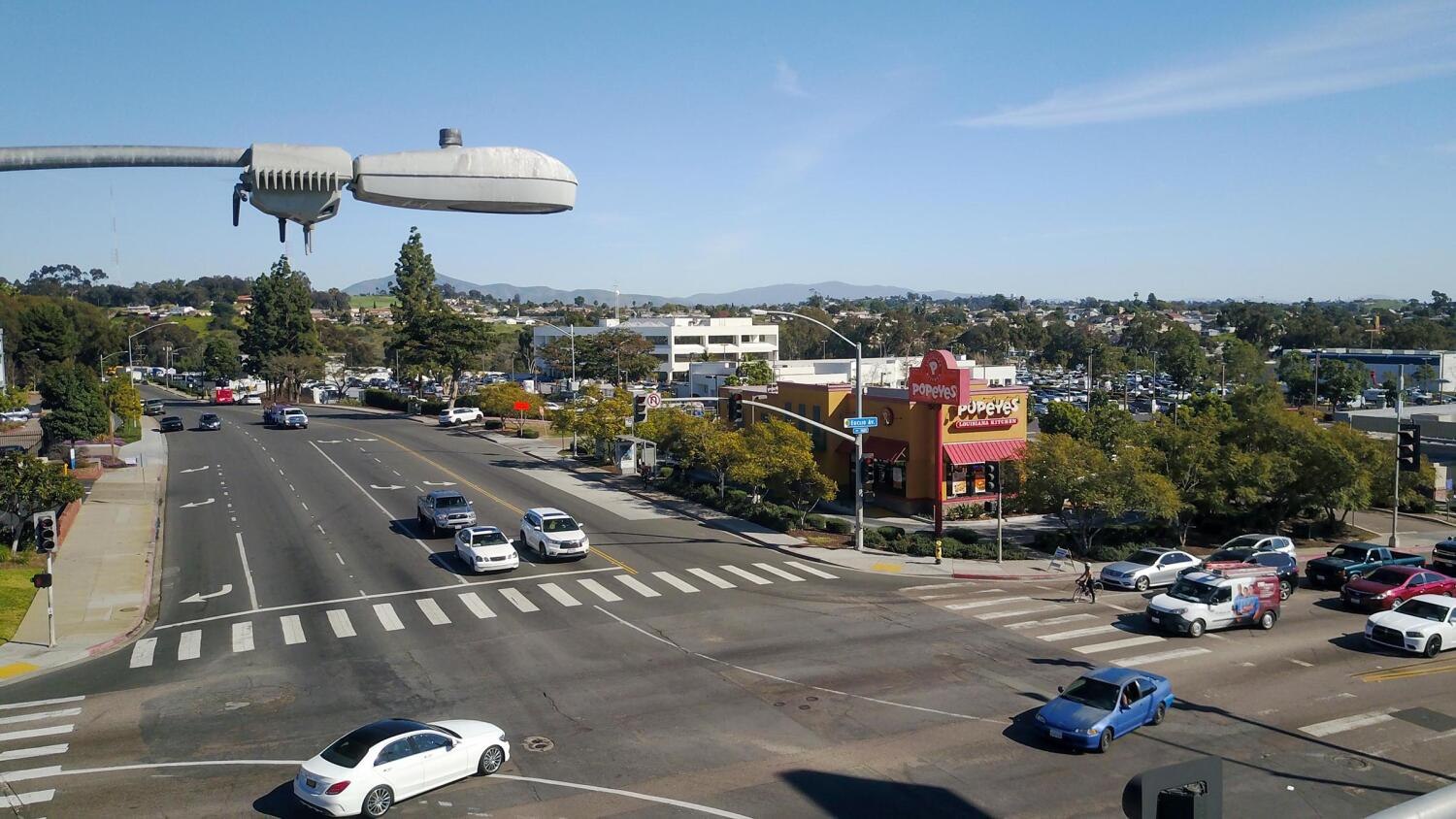
By Lyndsay Winkley
The San Diego Union-Tribune
SAN DIEGO, Calif. — After months of deliberation, and at times controversy, San Diego’s City Council on Tuesday gave its final approval to a police surveillance network that will cost $12 million over the next five years.
The network, made up of 500 cameras equipped with license plate reader technology, could be placed across San Diego — from Rancho Bernardo in the north to San Ysidro in the south — as early as January.
Police officials — who have touted the technology as a crime-fighting tool and a force multiplier — say the cameras will be installed in public places where there is no expectation of privacy. Investigators will not monitor the network in real time but instead review the footage and data collected after serious crimes or incidents occur.
The technology has prompted fierce pushback from some privacy and community advocates, who contend the contract and policies that govern the technology’s use don’t do enough to safeguard privacy or the data collected, and that funding for the project would be better spent on other public safety initiatives.
Despite concerns, the City Council approved the technology’s use in August, and on Tuesday approved the contract with Ubicquia, the company providing the cameras. A second company, Flock, will be providing the license plate reader technology, called ALPR for short, and will be a sort of subcontractor in the agreement, police officials said.
The contract’s approval is the final step in an eight-month process that has included 17 public meetings. San Diego will spend about $3.5 million in fiscal 2024 on hardware, software and connectivity, $1.5 million for installation and maintenance over the life of the contract, and $100,000 to replace the LED lights. The network will cost about $2 million annually over the remaining fiscal years.
“Smart Streetlights and ALPRs will make our communities safer,” said Mayor Todd Gloria in a statement. “They have been proven to help quickly identify and apprehend suspects in deadly crimes and bring them to justice.
“I want to thank the City Council for recognizing their value for public safety and approving the contract that now will enable us to deploy them.”
Dozens of speakers turned out Tuesday evening to speak out on the police proposal, some in support of the technology but most against.
Ultimately, five councilmembers voted in favor of the network, while three — Council President Sean Elo-Rivera and Councilmembers Vivian Moreno and Monica Montgomery Steppe — voted against the proposal.
While explaining his “no” vote, Elo-Rivera expressed concerns that the department wasn’t doing enough to properly weigh and integrate recommendations provided by the city’s Privacy Advisory Board, a volunteer oversight group created by San Diego’s new surveillance law that is tasked with evaluating the city’s use of technologies.
Several community organizations, including the Privacy Advisory Board, submitted a list of recommended changes to the contract that councilmembers considered. Many of those suggestions centered on better safeguarding data collected by the network, including controlling how Ubiquia can engage with information that’s collected — such as to whom the company can give data and how they can access what’s collected.
None of the recommendations were implemented, although police leaders argued some of the recommendations were already present in the contract. Police leaders said several times Tuesday evening that the data collected will not be sold, nor will it be shared unless compelled by a search warrant, subpoena or other court order.
Members of the Transparent and Responsible Use of Surveillance Technology San Diego Coalition, or TRUST SD, echoed Elo-Rivera’s concerns Tuesday night, pointing to the city’s botched attempt to install a network of surveillance cameras several years ago.
“When the old streetlight cameras were suspended in 2020, the city had no process for hearing the public’s concerns about mass surveillance technology,” said Seth Hall with TRUST SD, a coalition of community groups that helped craft the city’s new surveillance law. “Here we are in 2023, and we have a process, yet the city is still struggling to hear the public and the Privacy Advisory Board’s concerns about mass surveillance.
“If the city’s goal is to earn the community’s trust over how it uses mass surveillance,” he said, “we have a long way to go.”
With Tuesday’s approval, the department’s Smart Streetlights proposal became the first to complete the process outlined under the city’s surveillance ordinance. The city has identified hundreds of technologies that will need to follow suit.
—
©2023 The San Diego Union-Tribune. Visit sandiegouniontribune.com.
Distributed by Tribune Content Agency, LLC.


